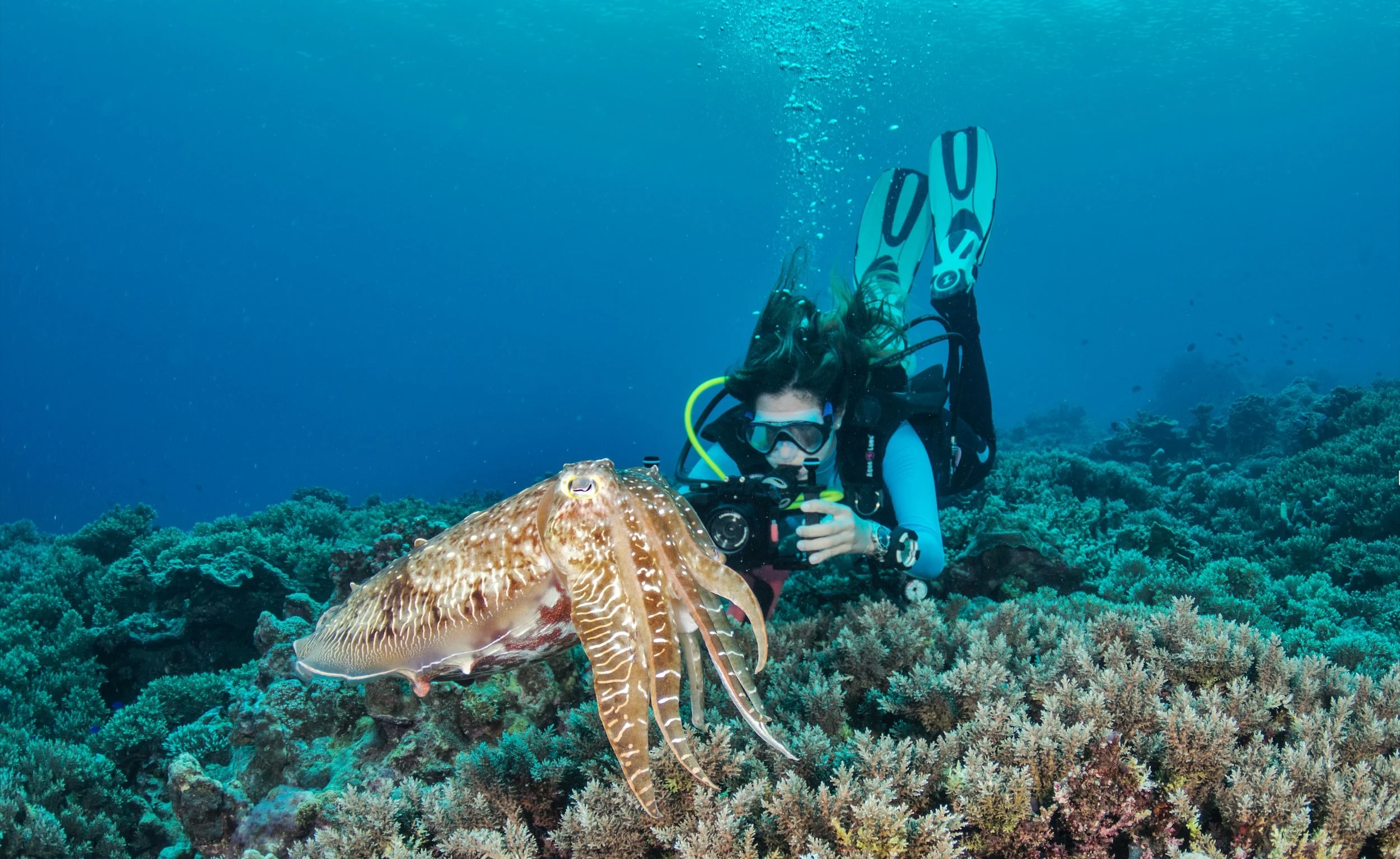
A Dream Journey with Lindblad Expeditions Aboard the National Geographic Orion
Thanks to the Rolex Scholarship, I had the once-in-a-lifetime opportunity to join an expedition aboard the National Geographic Orion, one of the finest and most elegant expedition ships on the seas. This journey took me across a part of the world I had never seen before, from the cultural heart of Bali to the breathtaking ecosystems of the Great Barrier Reef, passing through Indonesia’s richly diverse islands, remote coastal villages, and some of the most pristine dive sites on Earth.
I have to admit that I boarded the Orion with a fair amount of skepticism. Until then, I associated big cruise ships with mass tourism and everything I believed was wrong with it: environmental damage, cultural insensitivity, and shallow experiences. But I was wrong. What I learned on this trip is that it’s not the number of people that matters, but the way they are managed. And Lindblad Expeditions managed us with precision, purpose, and deep respect for the places we visited.
With over 100 passengers and crew, the potential for environmental and social impact was real, but everything was meticulously organized to minimize it. We were always divided into small expedition groups of 10 to 12 people, and our visits to communities or natural sites were staggered and brief. This not only reduced our footprint, but also made every experience more personal, thoughtful, and impactful. The rules were clear, the staff highly trained, and the mission deeply rooted in conservation and cultural respect.
Our journey began in Bali and spanned 20 unforgettable days, covering a stunning stretch of islands from the Moluccas to West Papua. On our first day, we visited Sumbawa Island, where the local community welcomed us with a traditional wedding ceremony and even a buffalo race on water. It was wild, joyful, and completely new to me. Back on the ship, we had a photography workshop with National Geographic photographers, where one lesson particularly stuck with me: before taking a picture of a person, ask them. Photographs don’t just belong to the photographer, they also belong to the subject. Respect is everything when you engage with a different culture.
Soon after, we stepped foot on Komodo Island, where I saw the legendary Komodo dragons in their natural habitat. It was one of the most surreal moments of my life. We kept a respectful distance, and the visit was short and silent so we wouldn’t disturb them. The local guides shared fascinating insights into their biology and behavior. It was peaceful, powerful, and educational.
Diving was, of course, a highlight throughout the trip. We explored vibrant coral reefs, spotted elusive marine creatures, and even had a close encounter with Sepia latimanus, a stunning cuttlefish and a master of camouflage. Triton Bay in West Papua was a true underwater paradise. I still remember surfacing from a dive there, thinking it must have been a dream.
One of the most thought-provoking stops was our visit to the Asmat region in New Guinea. Meeting this ethnic group face-to-face was powerful and complex. I was fascinated by how modern technology had integrated into their lives while their traditions, language, and customs remained strong. At the same time, I felt a deep sense of responsibility and guilt seeing their children grow up next to dirty water and trash, surrounded by diseases we could easily treat. Who are we to tell them how to live? But shouldn’t they have the opportunity to choose for themselves? What I came to believe is that responsible tourism, when done right, can empower local communities, preserve cultures, and improve living standards without forcing change upon them.
Looking back, I can say with absolute certainty that this trip reshaped me. It challenged my assumptions about tourism, conservation, and the world itself. I learned that you can travel with purpose, curiosity, and integrity. I saw that ecotourism, when managed thoughtfully, can become a powerful tool for both environmental protection and cultural respect.
The National Geographic Orion didn’t just carry me across oceans, it carried me into a new way of seeing the world. Thank you to Lindblad Expeditions and the Rolex Scholarship for giving me one of the most rewarding, enriching experiences of my life.

